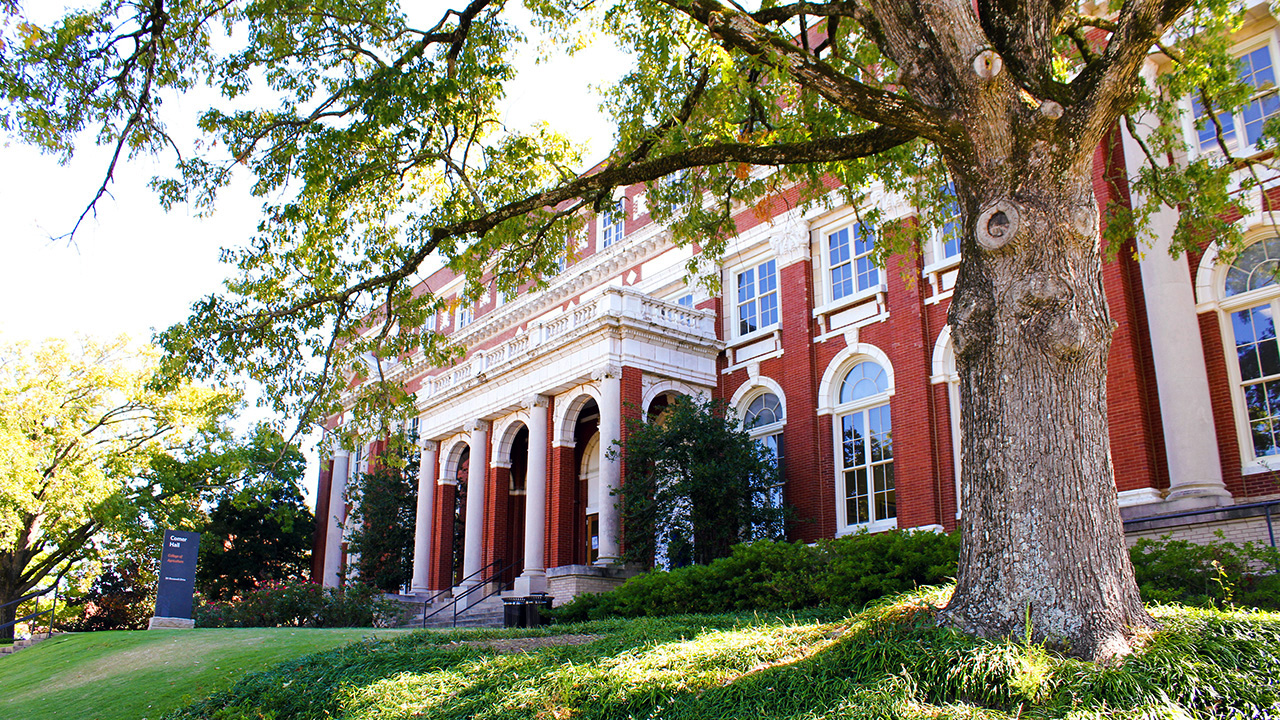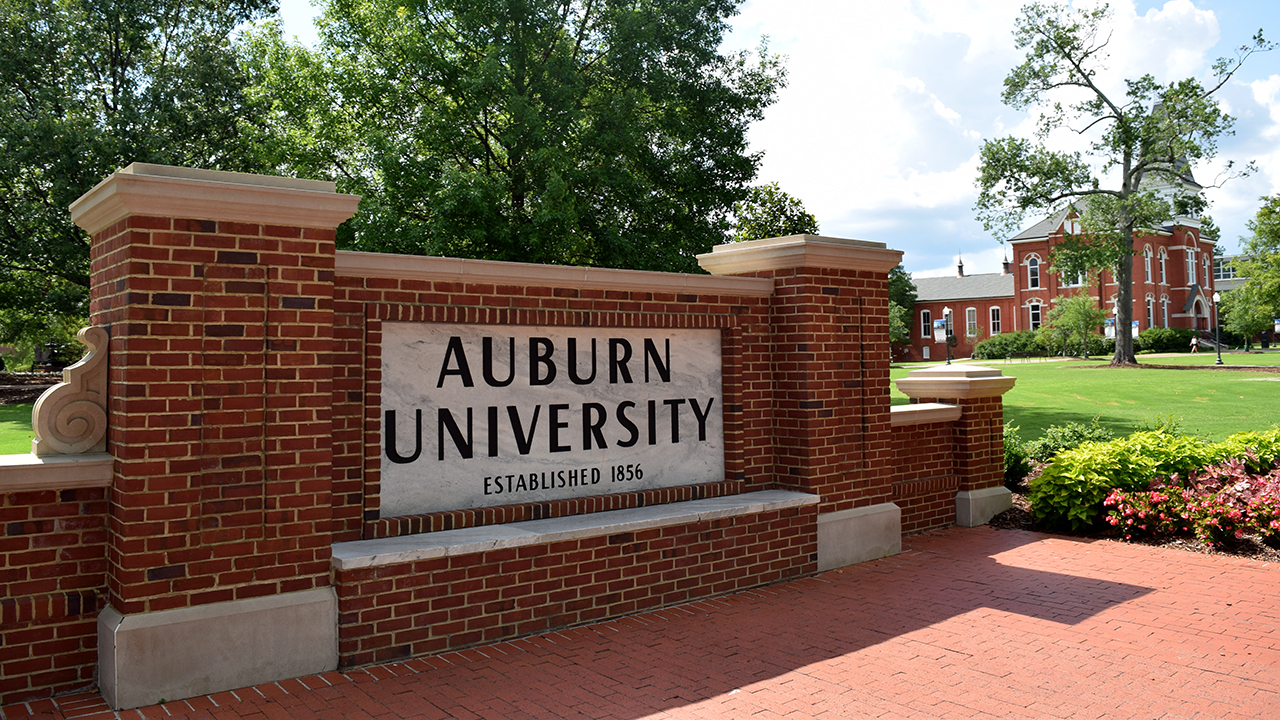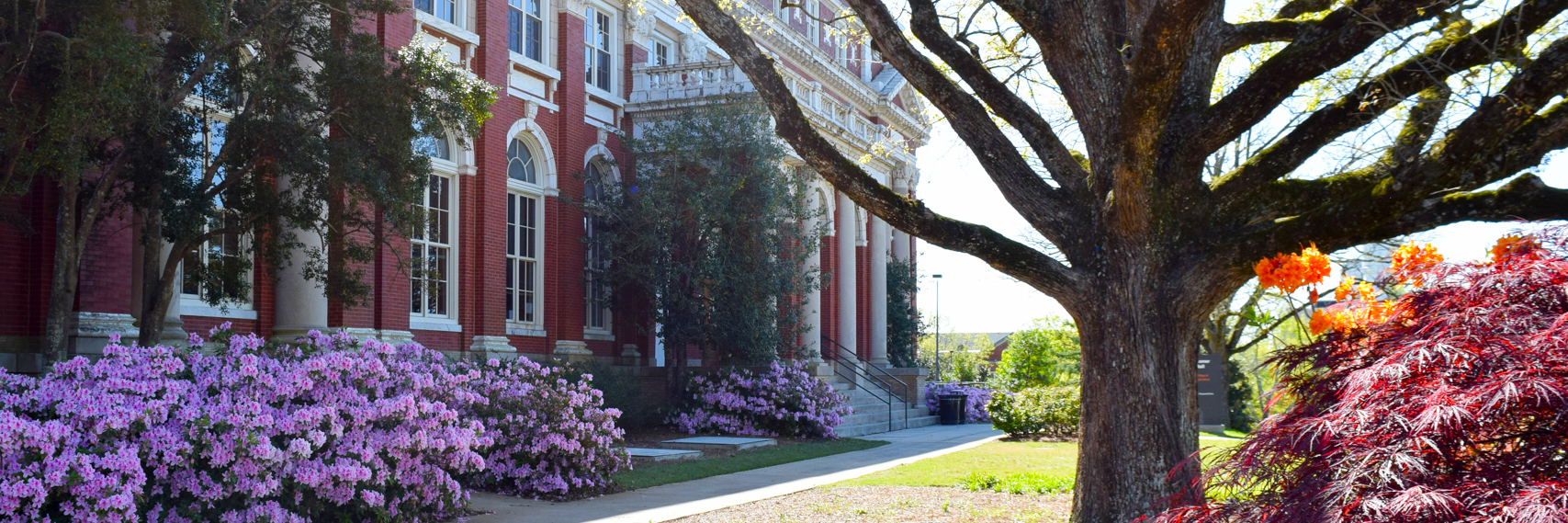
Visit the College of
Agriculture
Visit Campus & Ag Hill
Visit the college campus in person
The best way to find out whether the College of Agriculture is right for you is to experience it firsthand. During a visit to Auburn and Ag Hill, you can learn more about the college with a special interest session, take a tour of Ag Hill led by Ag Ambassadors on campus, and learn about our many research facilities.
Tour Options
Currently, in-person visits to the College of Agriculture are offered daily except for Wednesdays and weekends. Schedule a visit by clicking below to see available dates and times.
Group tours are available by request. Please email auburnag@auburn.edu to schedule a tour for your group!
Tour Options & Events
The College of Agriculture offers many opportunities for hands-on learning experiences. To learn more about these opportunities, review the information below about touring our state-of-the-art research facilities.
AUBURN EQUESTRIAN CENTER
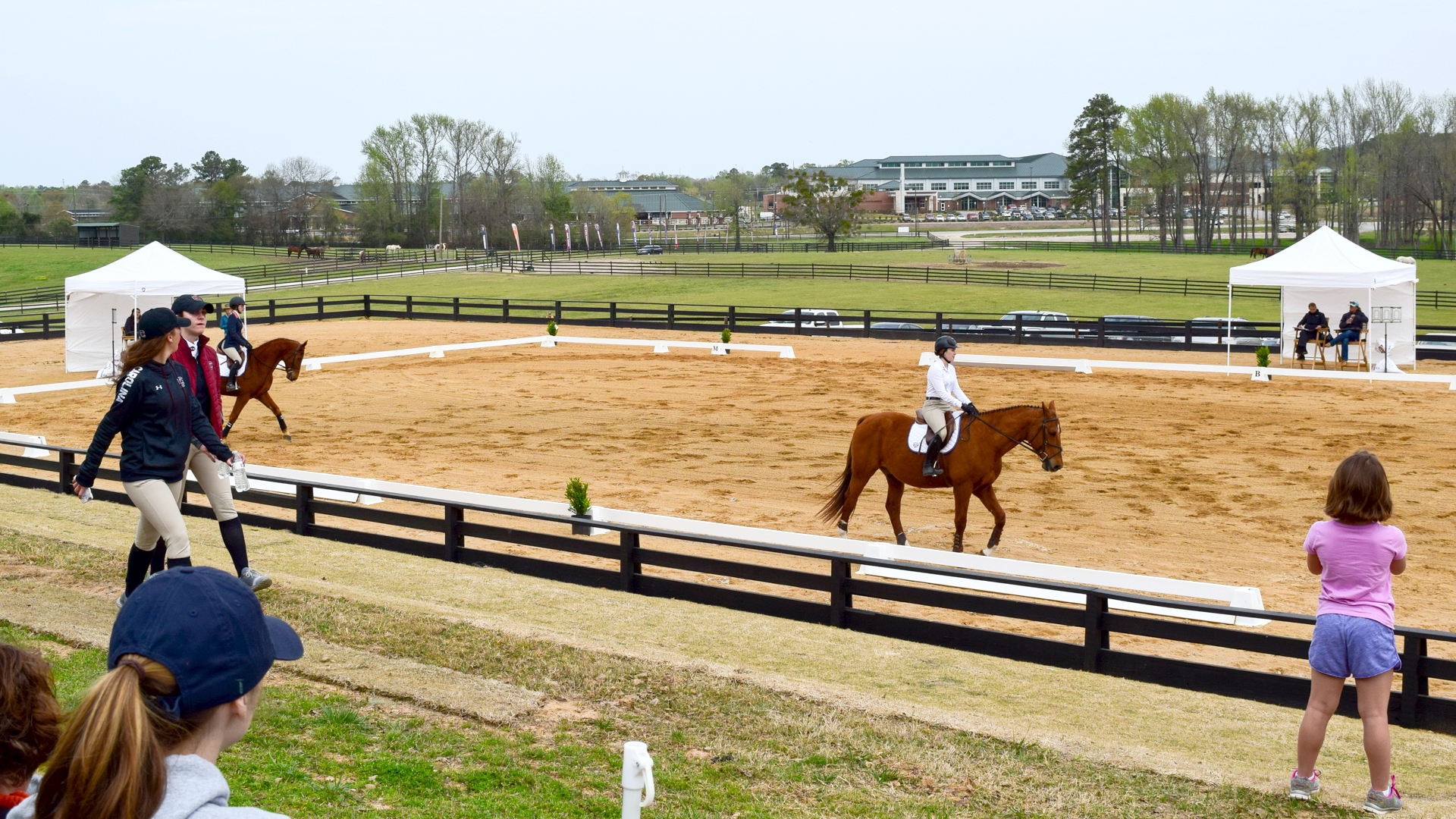
This spacious, 80-acre facility is conveniently located on the edge of campus, making it easily accessible for student-athletes, faculty and staff. There are multiple spacious pastures with centaur fencing and run-in shelters. This ideal location is a five-minute drive for most student-athletes, and a transit stop is located across the street.
LEARN MORE ABOUT THE AUBURN EQUESTRIAN CENTER
CHARLES C. MILLER JR. POULTRY RESEARCH AND EDUCATION CENTER
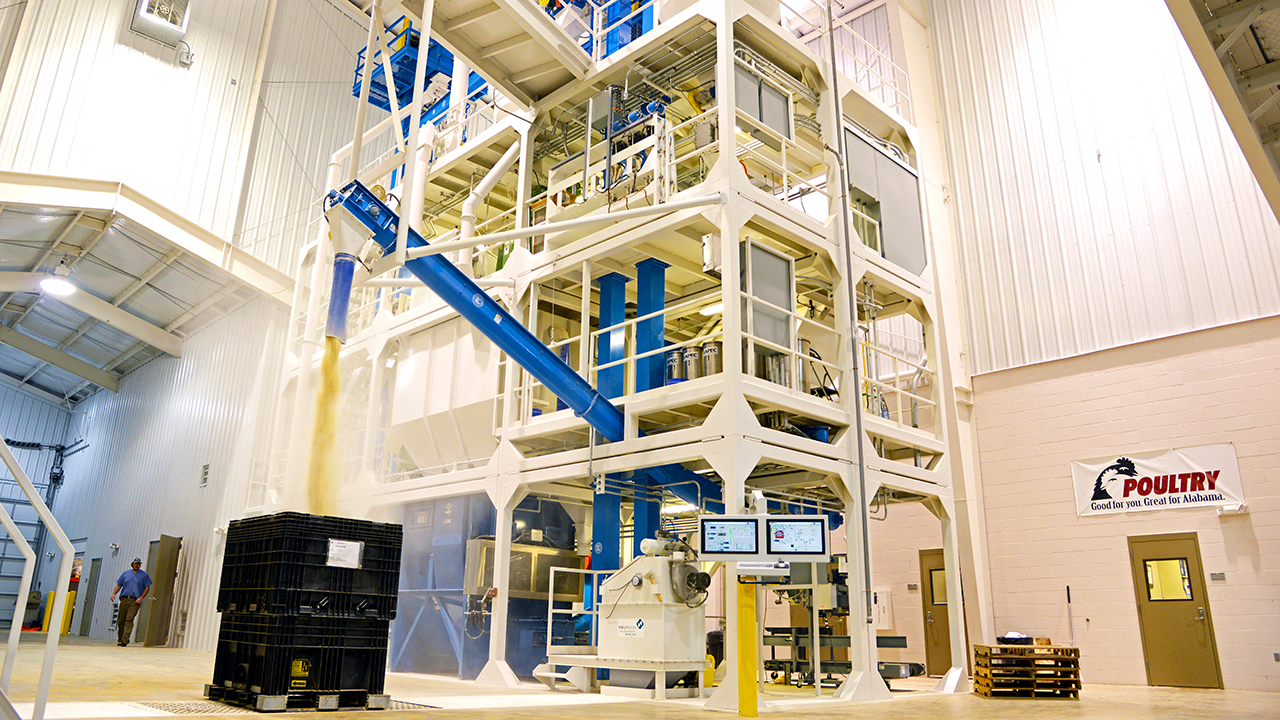
This research and education center will allow the Department of Poultry Science to realize its vision of significantly advance the university’s standing as a global leader in poultry research, instruction and outreach. This Center allows our Poultry Department to realize its vision of becoming the premier poultry education and research program.
LEARN MORE ABOUT THE CHARLES C. MILLER JR. POULTRY RESEARCH AND EDUCATION CENTER
RANE CENTER ROOFTOP GARDEN
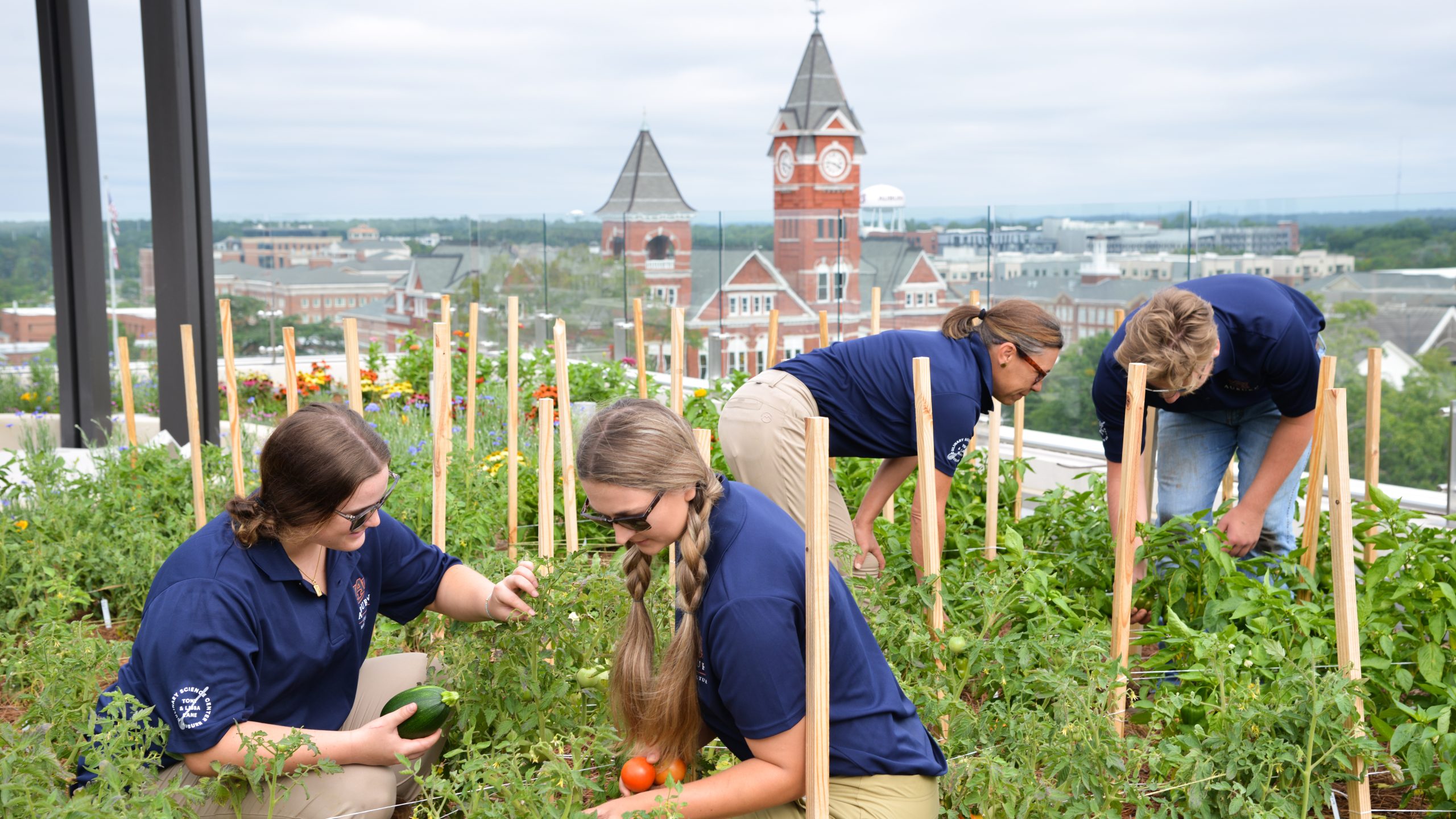
Atop the Tony and Libba Rane Culinary Science Center, adjacent to Ag Hill on the Auburn campus, lies an entirely edible rooftop garden operated by Department of Horticulture faculty, staff and students. The roof of the Rane Center, which sits at the corner of College and Thach, has a panoramic view of Samford Hall and, in the not-so-far distance, Jordan-Hare Stadium.
LEARN MORE ABOUT THE RANE CENTER ROOFTOP GARDEN
NOTE: We will not offer tours on dates the university is closed. See registration for availability.
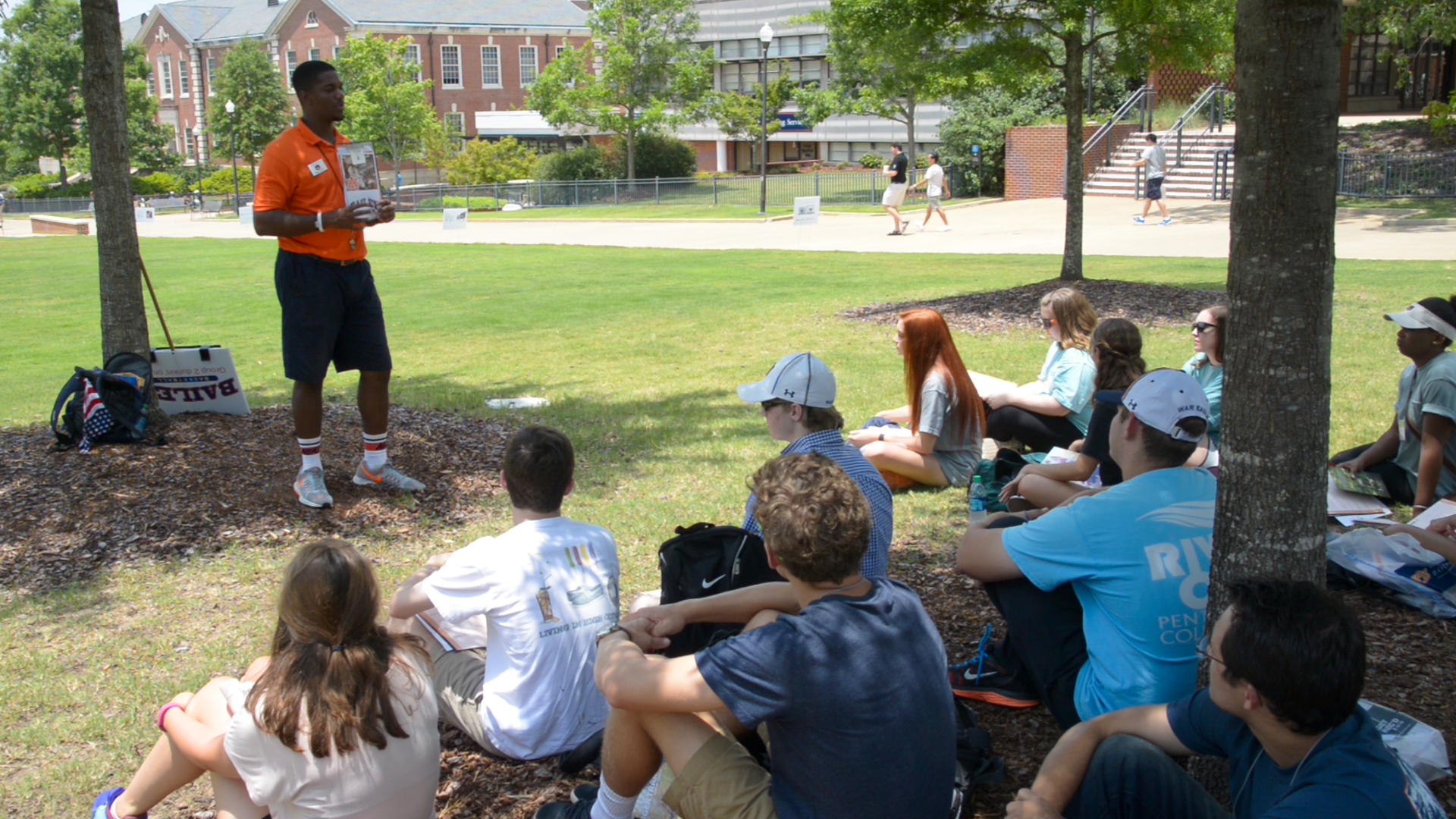
Majors & Minors
Graduate Degrees & Programs
overview
Departments
COA Facts
Admissions
First Year Experience
Awards & Fellowships
Mission Statement
Student Resources
Student Services
Apply Now
Contact
Student Services Office
105 Comer Hall
Auburn Univ, AL 36849
(334) 844-4768
auburnag@auburn.edu
Follow Us
UNIVERSITY TOUR OPTIONS
AU Main Campus Tour
Want to tour the entire Auburn University campus? Campus tours are offered through the university Office of Admissions and Recruitment. The complete campus tour takes about an hour and 45 minutes!
Experience Auburn University’s Virtual Tour
Nothing beats an actual tour, but you can always get a feel for campus exploring Auburn’s campus in a new interactive way! Take the Main Campus Tour in virtual reality by following the link below.
Self-Guided Tour
If you are unable to attend a weekday or Saturday tour, you are more than welcomed to visit our campus on your own. Explore at your own pace, on your own time!
Tour Tips
- Register Early. Tours can fill up quickly.
- Wear comfortable shoes and be prepared for the weather. Naturally, with a walking tour, you want to be comfortable as you explore. Bring an umbrella as the tour will include an outdoor portion.
- Looking for parking? When you register to tour, you will receive all information and instructions to park.
- Make the most of your visit. Register for tours and research units when available, or set up appointments with other facilities in advance. Let us know how we can help!
Auburn Hospitality & Tourism
When you are on Auburn University’s campus, be sure to visit the iconic Samford Hall, and take a picture in front of the Auburn University sign. Then head to nearby Toomer’s Corner, where students gather regularly to celebrate big athletic wins by rolling — yes, with toilet paper — the famous Auburn Oaks trees. Explore downtown and grab lunch or a cold glass of Toomer’s Drugs’ famous lemonade.
- Around campus you will find the sprawling Donald E. Davis Arboretum has a collection of native plants.
- The Jonathan Bell Lovelace Museum documents the university’s athletics history.
- The Jule Collins Smith Museum of Fine Art has changing exhibits ranging from the 18th–21st centuries, to modernism and contemporary.
- South of Auburn is Chewacla State Park with hiking, extreme bike trails and a large lake.
- Southwest of Auburn, the Tuskegee National Forest is home to wild deer with trails for hiking, biking and horses.
There is no shortage of opportunities, be sure to check out the Auburn & Opelika Tourism Bureau for ideas. Or better yet get involved and become a professional with Auburn’s Hospitality Management Program.
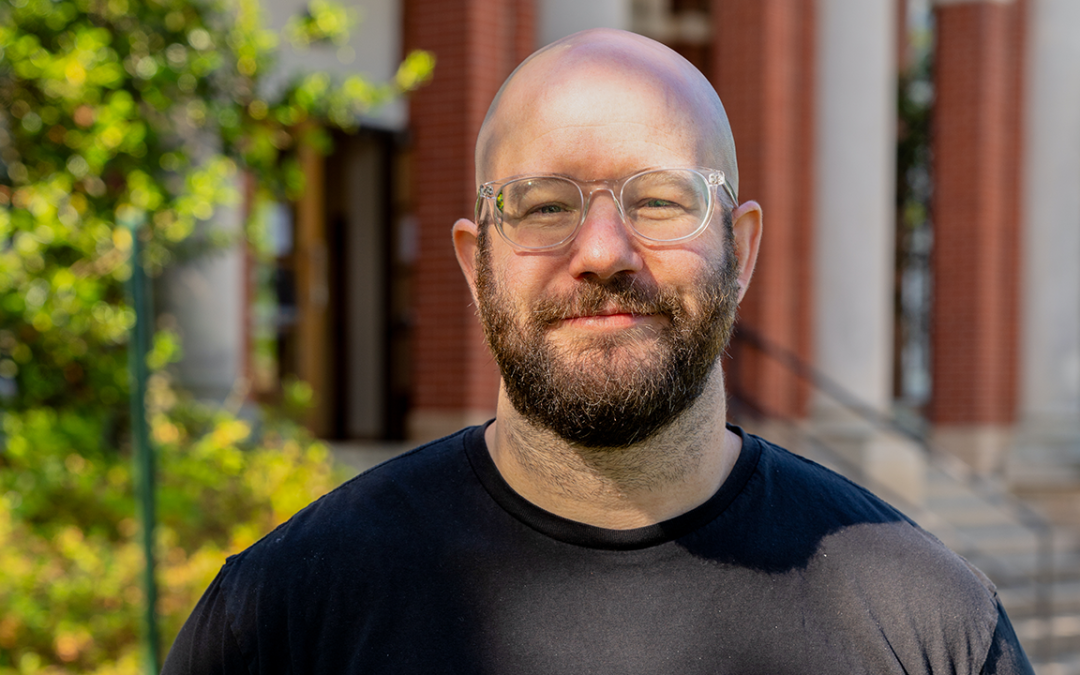
Agricultural grants boost research funding, equipment purchases
One of several grants offered through the Alabama Agricultural Experiment Station (AAES) research program for the current fiscal year will allow for the continuation of groundbreaking research originally established at Auburn University that focuses on using beneficial bacteria for promoting plant growth, plant health, nutrient uptake and insect pest prevention.
“I aim to pioneer the development and exploration of novel insecticide modes of action utilizing plant growth-promoting rhizobacteria (PGPR) as an innovative and environmentally benign alternative to conventional synthetic chemical insecticides,” said John Beckmann, assistant professor in the Department of Entomology & Plant Pathology and recipient of an AAES $50,000 grant.
Beckmann’s work builds on groundbreaking research by Joseph Kloepper, College of Agriculture professor emeritus, whose work focused on using PGPR for crop seed treatments.
This initial project evolved into a technology that has become a standard input in crop production and has spawned numerous research projects across several disciplines. PGPR seed treatments are being used for all traditional row crops, including corn, soybeans and others
“Leveraging Dr. Kloepper’s extensive PGPR strain library, our investigation will identify, evolve and apply PGPR-derived biological insecticides in a bid to find sustainable and effective alternatives to chemical insecticides,” Beckmann said.
The proposed methodology, he said, involves a multi-stage process starting with screening over 6,800 strains of PGPR against fruit fly eggs and larvae, to identify strains with potential insecticidal properties.
Beckmann and his team have already screened more than 500 strains and have found very significant insecticidal properties among a few isolates. The screening step is followed by a confirmation step, repeating the initial screening on a larger scale to validate the results.
Subsequently, the identified strains will undergo a process of directed evolution to enhance their insecticidal properties, explained Beckmann. This involves individual colony screening processes to potentially improve and amplify the insecticidal effect.
The evolved strains will then be sequenced as a first step to identify variations of genes responsible for the insecticidal activity. Finally, the project tests strains’ toxicity against a wider range of insect pests, assessing their applicability to broader pest management.
Beckmann’s grant is one of 22 competitive grants awarded across three principal AAES programs: AgR-SEED, Production Agricultural Research (PAR) and equipment grants for fiscal year 2024.
PAR projects typically address a specific problem and/or challenge being experienced currently by Alabama agricultural producers. The acronym AgR-SEED stands for Agricultural Research Enhancement, Exploration and Development.
The funding addresses some of the most immediate and long-term needs of agriculture at both the state and national levels. They are administered through the AAES with USDA National Institute of Food and Agriculture Hatch funding and matching state appropriations. Many of the two-year, $50,000 grants support combined research and extension projects to address current farming problems in a timely manner through applied research.
The following projects were funded for the current cycle. The name and College of Agriculture department or other college of the principal investigator is followed by the name of the proposal and the grant amount.
AgR-SEED Grants
John Beckmann, Department of Entomology & Plant Pathology, Pioneering PGPR-Based Bio-Insecticides for Sustainable Agriculture: $50,000.
Ariel Belk, Department of Animal Sciences, The influence of pathogen presence on the meat spoilage microbiome and quality deterioration: $49,836.
Ian A.E. Butts, School of Fisheries, Aquaculture & Aquatic Sciences, Advancing reproductive health and hatchery technology to improve catfish production: $49,999.
Hao Chen, College of Forestry, Wildlife & Environment, Transcriptional regulation of stem cell self-renewal and differentiation for wood formation: $49,600.
Chen Ding, College of Forestry, Wildlife & Environment, Accelerating genomic selection on stress and pathogenic tolerance of commercial trees based on physiological responses for resilient forest landscapes: $50,000.
Wellison Diniz, Department of Animal Sciences, Effects of maternal nutrition and one-carbon metabolite supplementation in fetal muscle programming: $50,000.
Brendan Higgins, Department of Biosystems Engineering, Upcycling of nutrients from poultry slaughterhouse solid wastes into value-added products using black soldier fly larvae cultivation: $49,944.
Ben Hinnant, College of Human Sciences, Good nights’ sleep intervention: Pilot of a randomized clinical trial to improve child and family sleep: $50,000.
Ramesh Jegnathan, College of Human Sciences, nerve growth factor on muscle atrophy associated with obesity and Type 2 diabetes: $50,000.
Sung-Hwan Kang, Department of Entomology & Plant Pathology, Investigating cotton-infecting Poleroviral proteins P3 and P3-5 interactions with plant proteome: $50,000.
Jasmeet Lamba, Department of Biosystems Engineering, Quantification of phosphorus losses in runoff under climate change: $50,000.
Mark Liles, Department of Biological Sciences, Development of a symbiotic seed treatment to improve peanut drought tolerance and reduce aflatoxin contamination: $50,000.
John Linhoss, Department of Biosystems Engineering, Sophisticated chickens: Using artificial intelligence techniques to locate Alabama broiler and broiler-breeder farms and evaluate rainfall capture potential: $50,000.
Mallory Lucier-Greer, College of Human Sciences, Understanding and addressing food insecurity in the military: A translational science approach: $49,826.
Aniruddha Maity, Department of Crop, Soil & Environmental Science, Understanding the influences of biotic and abiotic factors in herbicide resistance development in Italian ryegrass: $50,000.
Neha Potnis, Department of Entomology & Plant Pathology, Evaluation of cues driving natural competence and transformation in plant pathogenic bacteria belonging to the genus Xanthomonas: $50,000.
Tanzeel Rehman, Department of Biosystems Engineering, Developing precision weed management approaches to support sustainable organic vegetable production in Southeastern U.S.: $50,000.
Di Tian, Department of Crops, Soil & Environmental Science, Estimation of evapotranspiration based on multi-source data fusion and deep learning: $50,000.
PAR Grants
Zhaofei Fan, College of Forestry, Wildlife & Environment, Developing a whole-stand growth and yield model for planted longleaf pine (Pinus palustris Mill.) stands in the east Gulf Coastal Region: $49,873.
James Spiers, Department of Horticulture, Expediting blueberry production in central Alabama: $50,000.
Equipment Grants
Ian A.E. Butts, School of Fisheries, Aquaculture & Aquatic Sciences, Eppendorf Ultra Temperature Upright Freezer for aquatic biological samples: $7,594
Yucheng Peng, College of Forestry, Wildlife & Environment, Micrometitics TriStar II Plus Automatic Physisorption analyzer to support research.
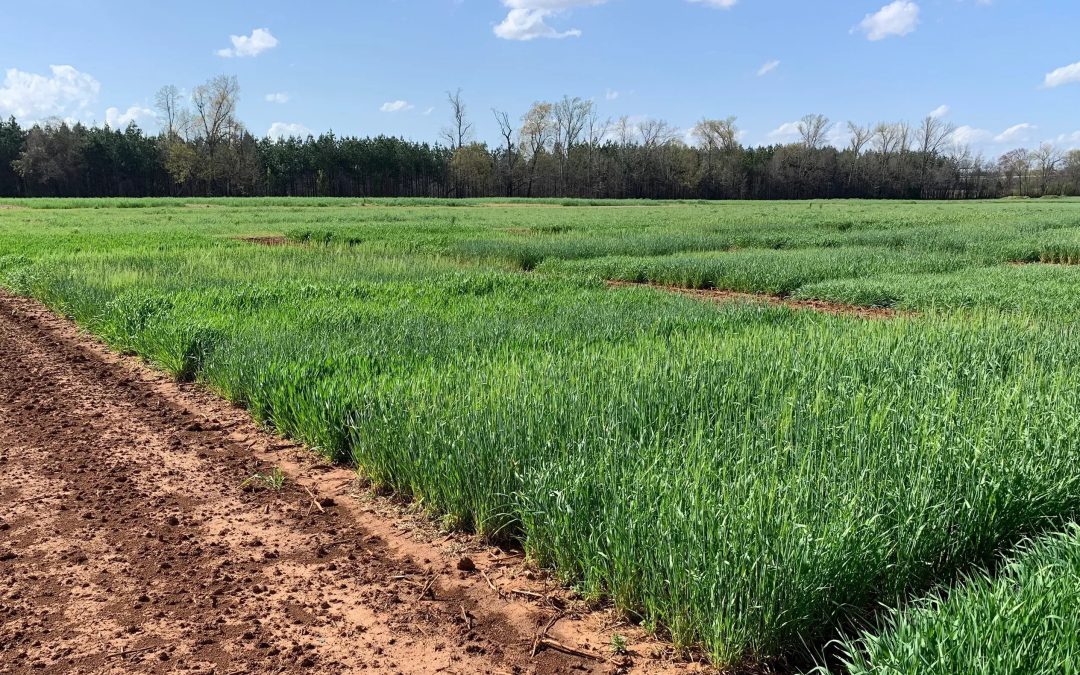
Auburn research makes Alabama-grown beer possible
Research shows Alabama barley good for beer, rotational crop The first beer ever brewed from Alabama-grown barley made its debut this past fall, and Auburn University researchers are looking at even more possibilities for a crop that’s not so common to farmers in the...
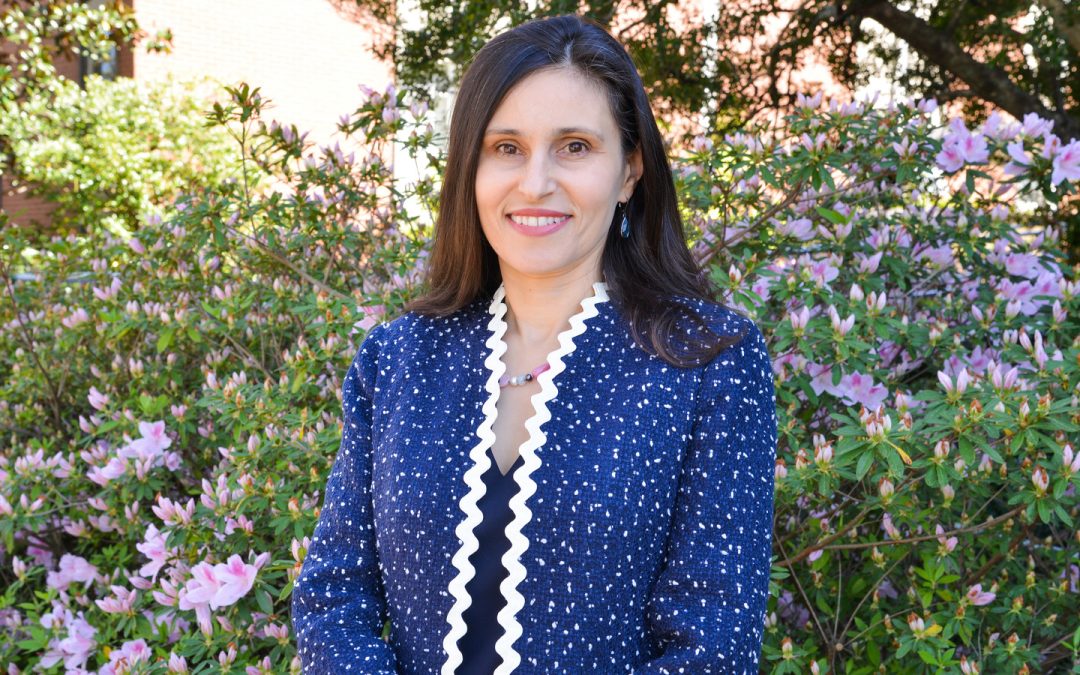
Auburn researchers study experiences of women in farming
Research made possible by $650,000 USDA-NIFA grant The number of farms in the U.S. operated by women has grown 27% in recent years. Yet, despite their growing number and influence, little is known about the needs of women in farming, the challenges they face and their...

